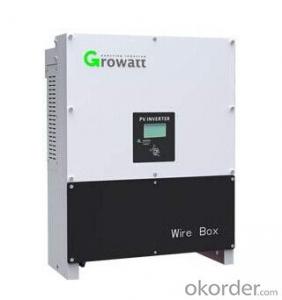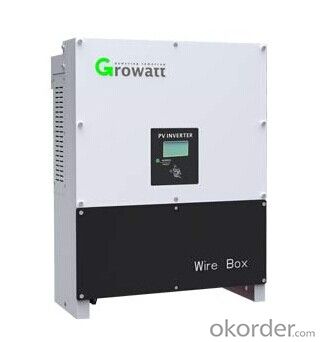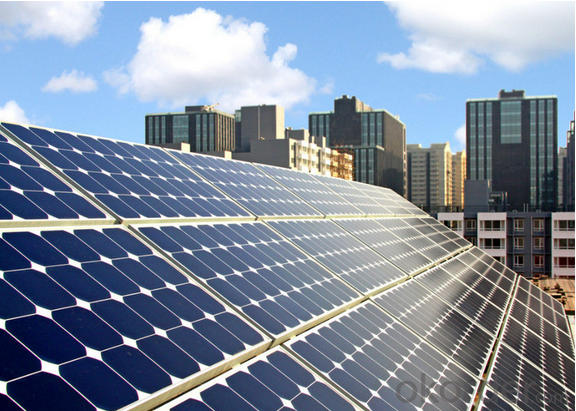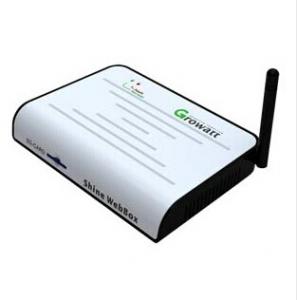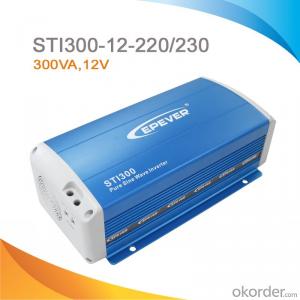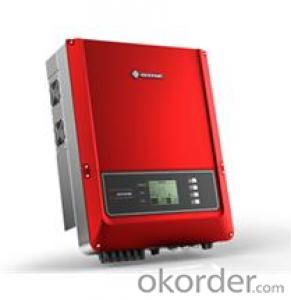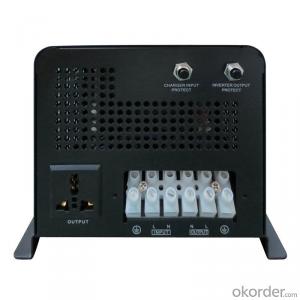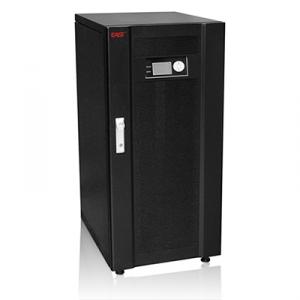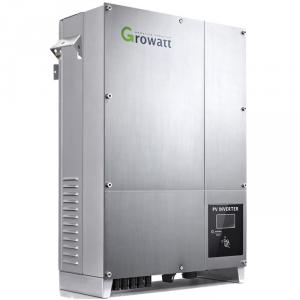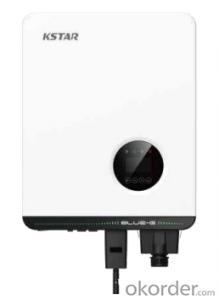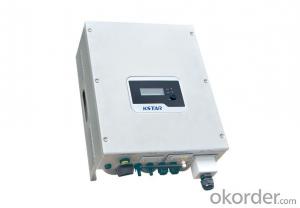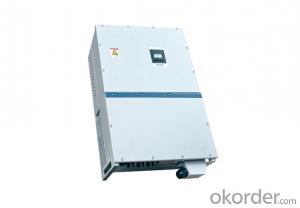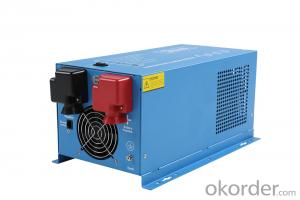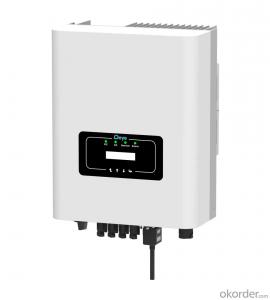Solar Inverter Battery String Solar Power Inverter 10KW-20KW-US, ETL
- Loading Port:
- Shekou
- Payment Terms:
- TT OR LC
- Min Order Qty:
- 5 watt
- Supply Capability:
- 10000 watt/month
OKorder Service Pledge
OKorder Financial Service
You Might Also Like
String Solar Power Inverter 10kw-20kw-US, ETL
Specifications
Maximum efficiency of 98%
Multi MPP controller
MTL String
Bluetooth technology&Sound controlPV Inverter 10000UE,12000UE,18000UE,20000UE-US Series
Leading - edge Technology
High efficiency of 97.5% delivery more energy
Dual independent MPP tracking lead to optimal energy harvesting
Integrated DC disconnect switch
Consistent and stable performance across entire input voltage and
output power range
True three-phase transformerless GT topology
Bluetooth / RF technology / Wi-Fi
Sound control, easy installation maintenance procedure
Newest generation IGBTs and advanced MPPT algorithms
Comprehensive protection for IGBTs, overvoltage, islanding,
short-circuit,overload,overheat,etc
Flexible system design with safety fuse module and lightening
proof moduleModel
Specification
10000TL3-US
12000TL-US
18000TL-US
20000TL-US
Input data(DC)
Max. recommended PV power
12500W
15000W
21600W
24000W
Max. DC Power
10500W
12500W
18750W
20850W
Max. DC voltage
600V
600V
600V
600V
Start voltage
120V
120V
120V
120V
DC nominal voltage
375V
375V
375V
375V
PV voltage range
80V-600V
80V-600V
80V-600V
80V-600V
MPP voltage range(Full load)
250V-600V
250V-600V
250V-600V
250V-600V
Max. input current of the MPP tracker A/tracker B
21A/21A
25A/25A
38A/38A
42A/42A
Max. input short circuit current
32A/32A
32A/32A
50A/50A
50A/50A
Number of independent MPP trackers/strings per MPP tracker
2/3
2/3
2/6
2/6
Output data(AC)
Nominal output power
10000W
12000W
18000W
20000W
Nominal AC voltage
480V
480V
480V
480V
AC voltage range
422-528VAC
422-528VAC
422-528VAC
422-528VAC
Nominal AC grid frequency
60 Hz
60 Hz
60 Hz
60 Hz
AC grid frequency range
59.3-60.5 Hz
59.3-60.5 Hz
59.3-60.5 Hz
59.3-60.5 Hz
Max. output current(cos φ=1)
12.0A
14.5A
21.5A
24A
Power factor(cos φ)
>0.99 (0.9 Leading to 0.9 Lagging)
>0.99 (0.9 Leading to 0.9 Lagging)
>0.99 (0.9 Leading to 0.9 Lagging)
>0.99 (0.9 Leading to 0.9 Lagging)
Harmonics
<3%< span="">
<3%< span="">
<3%< span="">
<3%< span="">
Grid connection type
3/N/E
3/N/E
3/N/E
3/N/E
Efficiency
Max. efficiency
97%
97%
97.5%
97.5%
CEC-Weighted efficiency
95.5%
95.5%
96%
96.5%
MPPT efficiency
99.5%
99.5%
99.5%
99.5%
Protection devices
DC reverse-polarity protection
yes
yes
yes
yes
Input over voltage protection -Varistor
yes
yes
yes
yes
DC switch for each MPP tracker
yes
yes
yes
yes
Input over voltage protection -DIN rail surge arrester(Option)
Class II
Class II
Class II
Class II
DC insulation measure
yes
yes
yes
yes
AC short circuit protection
yes
yes
yes
yes
Output over voltage protection -Varistor
yes
yes
yes
yes
Output over voltage protection -DIN rail surge arrester(Option)
Class II
Class II
Class II
Class II
String fuse type/size(Option)
15A/600VDC 10*38mm
15A/600VDC 10*38mm
15A/600VDC 10*38mm
15A/600VDC 10*38mm
General Data
Dimensions(W*H*D)
530*705*247mm 20.8/27.6/9.7inch
530*705*247mm 20.8/27.6/9.7inch
650*740*247mm 25.6/29.1/9.7inch
650*740*247mm 25.6/29.1/9.7inch
Weight
46kg/101.5lb
46kg/101.5lb
63kg/138.9lb
63kg/138.9lb
Operating ambient temperature range
–25°C ... +60°C –13°F ... +140°F (Derating above 40°C/104°F)
–25°C ... +60°C –13°F ... +140°F (Derating above 40°C/104°F)
–25°C ... +60°C –13°F ... +140°F (Derating above 40°C/104°F)
–25°C ... +60°C –13°F ... +140°F (Derating above 40°C/104°F)
Noise emission
≤50dB(A)
≤50dB(A)
≤50dB(A)
≤50dB(A)
Relative Humidity
0~95%
0~95%
0~95%
0~95%
Altitude
≤2000m/6560ft
Self Consumption night
< 3 W
< 3 W
< 3 W
< 3 W
Topology
Transformerless
Transformerless
Transformerless
Transformerless
Cooling concept
Fan Cool
Fan Cool
Fan Cool
Fan Cool
Electronics protection rating /connection area
NEMA 3R
NEMA 3R
NEMA 3R
NEMA 3R
Features
Display
Graphic
Graphic
Graphic
Graphic
Interface:RS232/RS485/ Bluetooth/RF/Zigbee/Wifi
yes/yes/opt/opt /opt/opt
yes/yes/opt/opt /opt/opt
yes/yes/opt/opt /opt/opt
yes/yes/opt/opt /opt/opt
Warranty:10 years /15 years
yes/opt
yes/opt
yes/opt
yes/opt
Certificates and approvals
UL1741,UL1998,IEEE1547,FCC part 15(class B),CSA C22.2 No.107.1
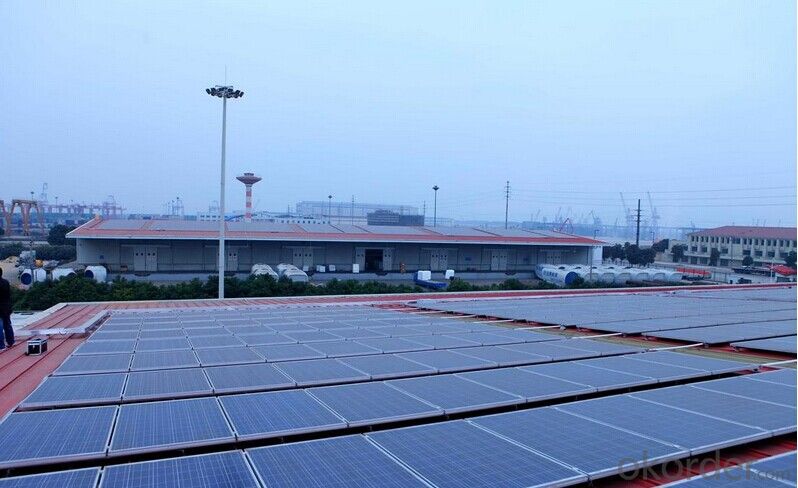
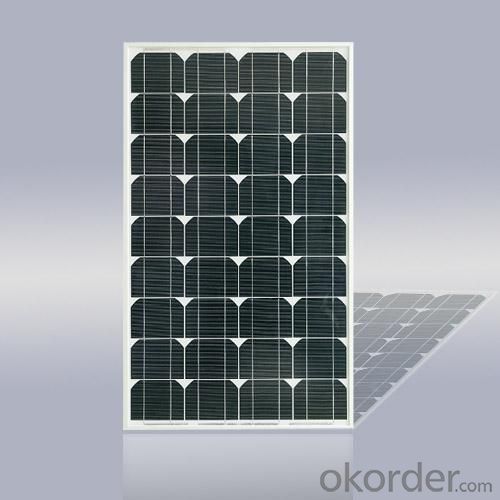
- Q: What is the impact of temperature on the performance of a solar inverter?
- The impact of temperature on the performance of a solar inverter is significant. As temperature increases, the efficiency of the inverter tends to decrease. This is because higher temperatures can lead to increased resistive losses, increased internal losses, and decreased power conversion efficiency. Additionally, overheating can cause the inverter to shut down or operate at reduced capacity to prevent damage. Therefore, it is important to consider temperature management and cooling strategies to optimize the performance and lifespan of a solar inverter.
- Q: Can a solar inverter be used with solar-powered greenhouse systems?
- Yes, a solar inverter can be used with solar-powered greenhouse systems. A solar inverter is responsible for converting the DC power produced by solar panels into AC power that can be used to run electrical devices. In the context of a solar-powered greenhouse system, the solar inverter would be essential for converting the solar energy collected by the panels into usable electricity to power various components such as fans, pumps, lighting, and climate control systems within the greenhouse.
- Q: How do you choose the right size of solar inverter for a solar power system?
- To choose the right size of solar inverter for a solar power system, you need to consider the total capacity of your solar panels and the maximum power output they can generate. The solar inverter's capacity should be equal to or slightly higher than the maximum power output of your solar panels to ensure optimal performance and efficiency. Additionally, you should also consider any future expansion plans for your solar power system to account for potential increases in capacity. It is recommended to consult with a professional solar installer or engineer to accurately determine the appropriate size of the solar inverter for your specific requirements.
- Q: How does a solar inverter communicate with other devices in a solar power system?
- Various communication protocols and interfaces facilitate the interaction between a solar inverter and other devices in a solar power system. One commonly used method involves wired connections, where communication interfaces like RS485 or Ethernet establish a direct link between the inverter and devices like solar panels, batteries, and monitoring systems. In addition to wired connections, wireless communication methods are also employed. Technologies such as Wi-Fi, Zigbee, or Bluetooth allow the inverter to establish connections with nearby devices. This wireless communication primarily serves monitoring and control functions, granting users remote access to manage their solar power system. Effective communication between the solar inverter and other devices is pivotal for optimal performance and efficiency of the solar power system. Vital data, including voltage, current, and temperature, is transmitted from the solar panels to the inverter. This information is critical for achieving optimal power conversion, as the inverter adjusts its operations based on these readings to maximize power output and ensure system safety. Moreover, communication with devices like batteries enables the solar inverter to efficiently manage charging and discharging cycles, optimizing energy storage and utilization. This ensures that surplus energy generated by the solar panels is effectively stored in the batteries and utilized during periods of low sunlight. In conclusion, the communication capabilities of a solar inverter are essential for integrating and coordinating various components within a solar power system. They enable efficient power conversion, monitoring, and control, ultimately maximizing the performance and advantages of solar energy generation.
- Q: What are the potential risks of over-discharging a battery connected to a solar inverter?
- The potential risks of over-discharging a battery connected to a solar inverter include reduced battery lifespan, decreased storage capacity, increased internal resistance, and potential damage to the battery cells. Over-discharging can lead to deep cycling, which can degrade the battery's performance and shorten its overall lifespan. It may also cause the battery to lose its ability to store energy efficiently, resulting in reduced storage capacity. Additionally, over-discharging can increase the internal resistance of the battery, leading to decreased efficiency and lower power output. In severe cases, over-discharging can cause irreversible damage to the battery cells, rendering them unusable and necessitating replacement.
- Q: How does a microinverter differ from a string inverter?
- A microinverter differs from a string inverter in that it is a small, individual inverter attached to each solar panel, converting the DC power generated by the panel into AC power. On the other hand, a string inverter is a larger central inverter that is connected to multiple solar panels in a string, converting the combined DC power into AC power. The main advantage of a microinverter is that it allows for maximum power point tracking and independent operation of each panel, increasing the overall efficiency and output of the solar system. Additionally, microinverters provide monitoring capabilities at the panel level, making it easier to identify and address any issues or malfunctions.
- Q: How does a solar inverter handle shading or partial panel obstructions?
- A solar inverter handles shading or partial panel obstructions by employing a technique called maximum power point tracking (MPPT). MPPT allows the inverter to constantly monitor the output of each individual solar panel and adjust its operating conditions to maximize power production. When shading or partial obstructions occur, the inverter intelligently redistributes the power flow to avoid any significant drop in overall system performance. This ensures that the panels operate at their optimal efficiency, even under less than ideal conditions.
- Q: Can a solar inverter be used for commercial applications?
- Yes, a solar inverter can definitely be used for commercial applications. In fact, solar inverters are commonly utilized in commercial settings to convert the direct current (DC) electricity generated by solar panels into usable alternating current (AC) electricity that can power various commercial appliances and equipment.
- Q: How does a solar inverter handle high temperatures?
- A solar inverter is designed to handle high temperatures by incorporating various heat management techniques. It uses heat sinks, fans, or other cooling mechanisms to dissipate excess heat generated during operation. Additionally, advanced thermal management systems are employed to regulate the internal temperature and prevent overheating. This ensures the inverter's efficiency and reliability even in hot weather conditions.
- Q: Can a solar inverter be used with solar-powered irrigation systems?
- Yes, a solar inverter can be used with solar-powered irrigation systems. A solar inverter is used to convert the direct current (DC) power generated by solar panels into alternating current (AC) power that can be used to operate electrical devices. In the case of solar-powered irrigation systems, the solar inverter would be used to convert the DC power produced by the solar panels into AC power to run the irrigation pumps and other electrical components of the system. This allows for efficient and sustainable operation of the irrigation system using solar energy.
Send your message to us
Solar Inverter Battery String Solar Power Inverter 10KW-20KW-US, ETL
- Loading Port:
- Shekou
- Payment Terms:
- TT OR LC
- Min Order Qty:
- 5 watt
- Supply Capability:
- 10000 watt/month
OKorder Service Pledge
OKorder Financial Service
Similar products
Hot products
Hot Searches
Related keywords
